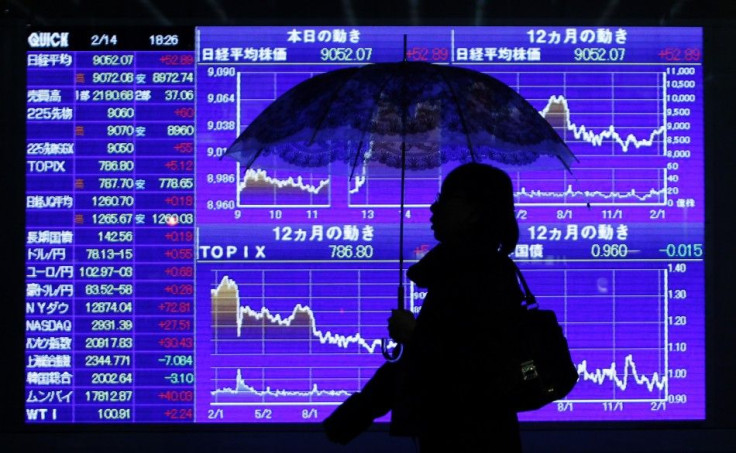Asian Markets Rise On China?s Growth Promise And Europe's Easing Worries

Asian markets rose Tuesday as China promised to spur growth and France and Germany agreed to prevent Greece from exiting the euro zone.
Japan’s Nikkei rose 1.10 percent or 95.40 points to 8,729.29. Chinese Shanghai gained 1.06 percent or 25.01 points to 2,373.31. Hong Kong's Hang Seng rose 0.62 percent or 116.83 points to 19,039.15. South Korean KOSPI also declined 1.64 percent or 29.56 points to 1,828.69.
Market sentiments were positive as Chinese Premier Wen Jiabao promised to take steps to boost growth and end the slowing economic development. It is highly expected that the country will introduce stimulus measures by means of further easing the monetary policy, which will encourage liquidity in the financial system and help the economy regain its growth momentum.
More reserve ratio cuts are expected in China to spur lending to small businesses. It is also reported that policy makers in China are pushing to speed up approval of infrastructure projects and may allocate funds earlier than initially planned.
Another factor that lifted Asian market sentiment was the agreement between France and Germany to work together in ensuring Greece's presence in the euro zone. In a joint news conference in Berlin, Monday, France's new finance minister Pierre Moscovici and his German counterpart Wolfgang Schaeuble pledged their support for continued efforts to keep Greece in the euro zone.
“We completely agree that we have to stick with what we agreed with Greece and that we have to do everything. We want Greece to remain in the Euro-Union and want to do everything to reach that goal,” Schaeuble said.
However, it cannot be said that markets are out of red since Greece will have fresh elections in June. There are concerns that parties opposing austerity measures will gain majority in the re-election, leading to an eventual default on its debt obligations and an unpleasant exit from the euro zone.
© Copyright IBTimes 2024. All rights reserved.











